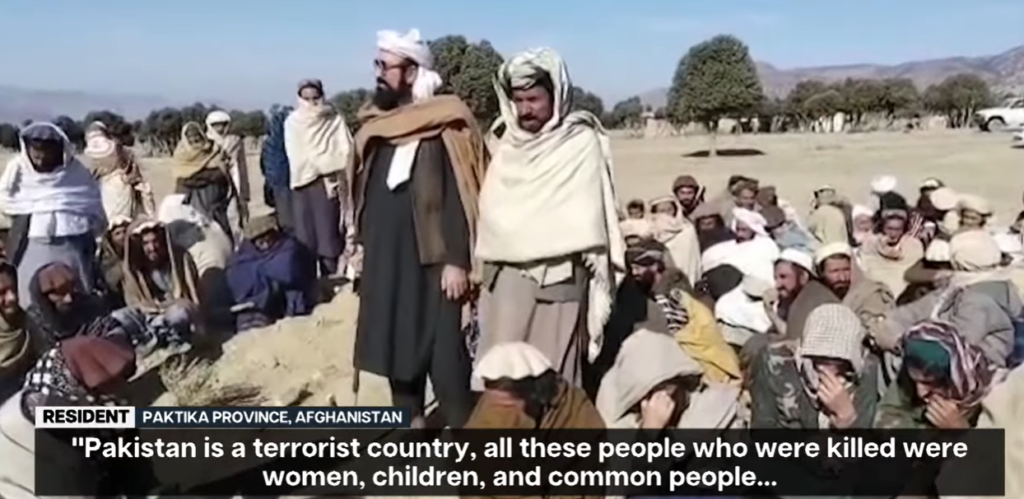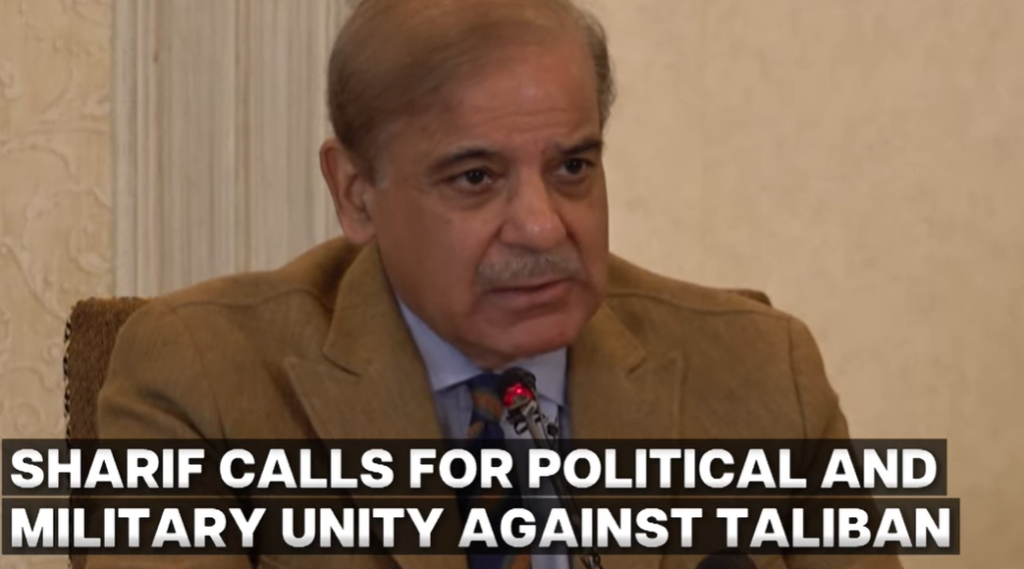Pakistan’s PM Sharif Vows to Crush Taliban Amid Rising Tensions with Afghanistan.

Pakistan’s PM Sharif Vows to Crush Taliban Amid Rising Tensions with Afghanistan
In a resolute stance against escalating militancy, Pakistan’s Prime Minister Shehbaz Sharif has pledged to “crush” Taliban insurgents operating within the country’s borders. This declaration comes amid increasing cross-border attacks from Afghanistan-based militants, straining relations between Islamabad and Kabul.

Background
Since the Taliban’s return to power in Afghanistan in August 2021, Pakistan has witnessed a resurgence in militant activities, particularly in the Khyber Pakhtunkhwa and Balochistan regions. The Tehrik-i-Taliban Pakistan (TTP), also known as the Pakistani Taliban, has intensified its operations, emboldened by the geopolitical shift in the neighboring country. The availability of advanced weaponry and safe havens across the border has further exacerbated the security situation.
Operation Azm-e-Istehkam
In response to the deteriorating security landscape, the Pakistani government launched Operation Azm-e-Istehkam in June 2024. Unlike previous large-scale military campaigns, this operation focuses on targeted intelligence-based actions aimed at dismantling militant networks without causing mass displacement of civilians. Prime Minister Sharif emphasized that the operation seeks to energize the implementation of the National Action Plan, addressing both terrorism and the extremism that fuels it.
Recent Developments
Tensions escalated in December 2024 following a deadly attack on a Pakistani military outpost in South Waziristan, resulting in the deaths of 16 Frontier Corps soldiers. The TTP claimed responsibility for the assault, highlighting the persistent threat posed by militants operating from Afghan territory. In retaliation, Pakistan conducted airstrikes targeting terrorist bases in Afghanistan, reportedly eliminating 71 militants.
Diplomatic Strain

The cross-border militancy has strained diplomatic relations between Pakistan and Afghanistan. Islamabad has repeatedly called on the Afghan Taliban government to prevent its territory from being used as a launchpad for attacks against Pakistan. Despite these appeals, the Afghan government’s inaction has led Pakistani officials to consider unilateral measures, including potential cross-border strikes to neutralize threats. Defense Minister Khawaja Asif stated, “We won’t serve them with cake and pastries. If attacked, we’ll attack back.”
Prime Minister’s Resolve
Minister Sharif reiterated his government’s commitment to eradicating militancy by addressing a civil-military huddle. He labeled the insurgents as “kharjis,” a term historically used to describe rebels against the state, and vowed to crush them decisively. Sharif underscored that the operation would not mirror previous large-scale military campaigns but would instead focus on precise, intelligence-driven actions to dismantle militant infrastructure.
Public Sentiment and Challenges
Wary of prolonged conflict, the Pakistani public has shown mixed reactions to the government’s renewed military initiatives. While there is general support for measures ensuring national security, concerns persist regarding potential civilian casualties and the displacement of communities in affected regions. The government has assured that Operation Azm-e-Istehkam is designed to minimize such risks, focusing on targeted operations without large-scale population displacement.
Regional Implications
The intensifying conflict has broader implications for regional stability. The porous Pakistan-Afghanistan border has long been a conduit for militant movement, complicating counter-terrorism efforts. Pakistan’s potential cross-border strikes could further strain relations with Afghanistan, potentially leading to retaliatory actions and a cycle of escalation. The international community has expressed concern over the situation, urging both nations to collaborate in addressing the shared threat of militancy.

Prime Minister Shehbaz Sharif’s vow to crush the Taliban reflects Pakistan’s determination to confront the resurgence of militancy threatening its security. Operation Azm-e-Istehkam represents a strategic shift towards targeted, intelligence-based operations aimed at dismantling militant networks with minimal civilian impact. However, the complexities of cross-border insurgency and strained diplomatic relations with Afghanistan present significant challenges. The path forward requires balancing military action and diplomatic engagement to ensure long-term regional stability.







